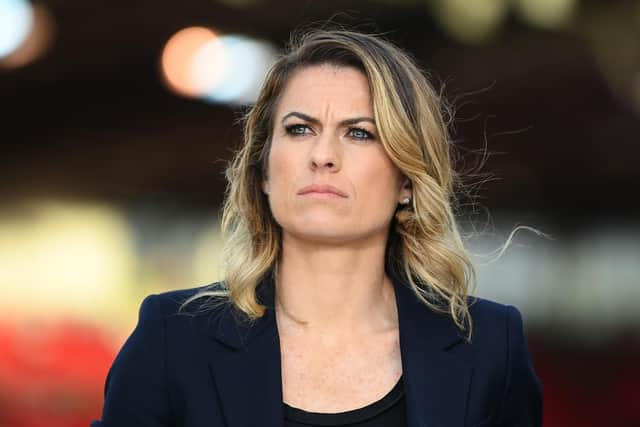Lewes FC issue detailed verdict on ‘Karen Carney review’ of women’s football
and live on Freeview channel 276
The report – “Raising the Bar: Reframing the opportunity in women’s football” – was released last week and has been commonly known as the Karen Carney review of women’s football, Carney having played a pivotal role in it.
Lewes FC said: “It is clear from the depth and breadth of recommendations and analysis that very meaningful conversations have been had with a range of stakeholders from across the game.
Advertisement
Hide AdAdvertisement
Hide Ad"Concerns, challenges and needs from a wide range of stakeholders have been aired and listened to perhaps for the first time. We are also proud of our players for their activism and campaigning in the lead up to their FA Cup Quarter Final against Manchester United, including an open letter calling for equal FA Cup prize money, which subsequently received more than 7000 signatures.


“Significantly, we welcome the review’s vision for English women’s football of “a world leading sport that…generates immense economic and social value”, particularly the emphasis on sport’s social value and impact on society.”
The review sensitively handles a lot of significant issues.
Lewes added: “In particular we warmly welcome:
“The placing of financial sustainability at the heart of the recommendations, with an acknowledgement that whilst “lots of the recent success in the top two tiers of the women’s pyramid has been dependent on investment from affiliated men’s teams… the game now needs to grow in its own right to reach its true potential and stand on its own two feet.”
“The emphasis on the need for shared representation and voting rights between WC clubs and WSL clubs to grow the game together, and sustainably to reduce the gap that is growing between the two tiers and the recommendation for increased support to Tiers 3 and below to develop and grow within the whole ecosystem.
Advertisement
Hide AdAdvertisement
Hide Ad“The dismissal of closed leagues as an engine for investment.
“The emphasis on closing the gap in FA Cup prize money to allow women’s teams to earn money through on-pitch success.
“The recommendation to lower barriers to international talent whilst investment is sought to dramatically support the development of the domestic talent pool.”
Lewes said they also had concerns – namely:
Financial sustainability is set as an “ultimate objective” rather than a here and now priority.
Advertisement
Hide AdAdvertisement
Hide AdThe call for standards to rise immediately runs counter to the emphasis on financial sustainability and could put some clubs, especially those that are not dependent on large men’s clubs, at risk.
An introduction of multi-year “Financial Guarantees” in the licence criteria in the near future, if not weighted, could prevent small or independent clubs from their rightful place within the leagues, even though they may actually provide the best opportunity and vehicle for new, fresh investment to enter into the leagues and a shift away from existing men’s clubs as the main funding stream.
The rich culture and history of women’s football, its inclusivity and (current) absence of toxic tribalism, and its spirit of collaboration, resilience, joyfulness and fight is not always captured. This culture, whilst intangible and hard to measure, is certainly a valuable asset that is at the core of much of the recent growth and interest in the game and should be preserved.
Lewes FC added: “We believe that a dedicated team of experts and practitioners from across the game should come together to work on and publish a plan for implementation and identify ways to monitor progress and success across the different chapters and recommendations. Lewes FC would be pleased to be part of that process. Only with dedicated and widespread ownership and accountability will we see the transformative progress that this review has the capacity to make.
Advertisement
Hide AdAdvertisement
Hide Ad“We would like to place on record our thanks to Karen Carney for her dedication and hard work to realise this report, and extend that gratitude to her team of colleagues at the Department for Culture Media and Sport and her expert group. We would also like to thank all those who contributed to the review through written contributions or via meetings. Only collectively, through dedicated action can we take the game forward.”